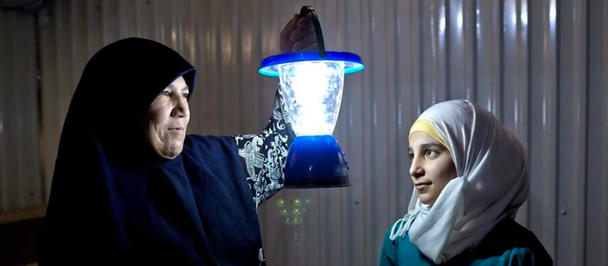The critical connection between human rights and our natural world
December 10, 2022

The right to a clean, healthy and sustainable environment as recognized by the UN General Assembly is a key entry point to build the future we want.
74 years ago, the United Nations General Assembly adopted the Universal Declaration of Human Rights (UDHR) setting out a broad range of fundamental rights and freedoms to which all people are entitled.
On this Human Rights Day 2022, in the face of new and evolving threats, we are reminded of the centrality of these rights.
At a moment when people and planet are in crisis like never before, we must embrace the interconnected nature of human rights and the environment and take coordinated actions for their protection.
And while there is no one size fits all approach –supporting the realization of the right to a clean, healthy and sustainable environment as recognized by the United Nations General Assembly earlier this year will be a key entry point to build the future we want.
The triple planetary crisis of climate change, pollution, and biodiversity loss threatens to reverse decades of human development progress, with disproportionate effects on the rights of marginalized or vulnerable people and communities. In turn, these events act as threat multipliers, amplifying conflicts, tensions, structural inequalities and imperiling the 2030 agenda.
This critical connection between human rights and our natural world makes the pursuit of environmental justice an urgent priority. Without a clean and healthy environment, economic and social development cannot be sustained.
In a world of colliding crises, we cannot afford to address these challenges sequentially. Now more than ever our efforts must focus on root causes through long-term integrated solutions based on stronger environmental laws and expanded protections for people and planet.
Where the right to a healthy environment is legally recognized, countries have made steady progress, while opening pathways for progress on other rights.
Environmental justice is also about protecting people. Today, the defenders and institutions that work on the front lines of this battle are increasingly under threat.
According to a recent Global Witness report, 200 land and environmental defenders were killed in 2021 – nearly four people a week. 40 percent of all fatal attacks target Indigenous peoples, despite them only making up 5 percent of the world’s population. Around 1 in 10 of those killed in 2021 were women.
And these abuses extend beyond individuals. Today, national human rights institutions (NHRIs) are facing rising and sophisticated forms of reprisals. These threats occur across all regions, ranging from political attacks to physical intimidation and assaults.
We must do more to protect those that protect our planet.
But legislation, and individual action can only go so far. Greater progress requires increased ambition, new coalitions, new partnerships, and new joined up effort.
Today, business has a unique role to play. With global reach and powerful influence, the private sector has a distinct ability to motivate broader change.
Not least of all because they have a responsibility.
Just 100 businesses known as “carbon majors” are responsible for 71 percent of greenhouse gas emissions since 1988. Whether through unsafe drinking water, crop loss, coastal erosion or pollution related deaths, environmental damage from 635 billion tons of emissions has a profound impact on the most basic human rights.
However, they also have a tremendous opportunity.
Given the global nature of supply chains, businesses have a sprawling and multidimensional impact on both the environments in which they operate and the communities they interact. When these companies embrace responsible business practices – with human rights at their centre – they can deliver transformative change across boundaries and borders.
Thanks to the UN Guiding principles on Business and Human Rights, companies have a practical framework for translating environmental justice into sustainable business practice.
The Guiding Principles serve as a key international standard for the private sector’s duty to protect people and places from the impacts of their operations.
Today, UNDP together with government partners, forward-looking companies, investors, and an engaged community of stakeholders are motivating faster, more comprehensive implementation of the Guiding Principles in every region of the world.
That same motivation for faster action is what Human Rights Day is all about.
Human rights belong to all people. Preserving them is a shared responsibility. Nowhere is this collective interest more urgent or fundamental than in the conservation of our common home.
Strengthening human rights is not only the right thing to do but the smart and sustainable thing to do. This is a ‘problem solving’ tool to reduce inequalities, increase accountability, preserve our planet and ensure that no one is left behind in the 2030 Agenda.
"Without a clean and healthy environment, economic and social development cannot be sustained."

 Locations
Locations




